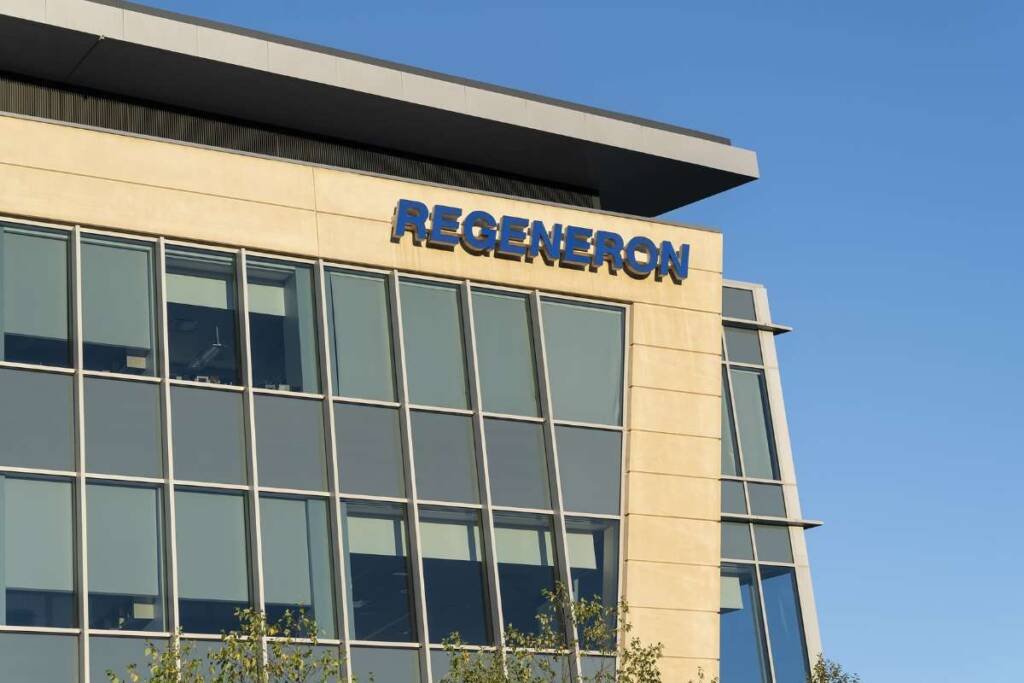On August 18, 2023, Regeneron Pharmaceuticals announced a remarkable milestone. The US Food and Drug Administration (FDA) has granted approval for Veopoz (pozelimab-bbfg), marking a pivotal breakthrough in the realm of medical treatments. Veopoz is now authorized for the treatment of both adult and pediatric patients, starting from 1 year of age, grappling with CHAPLE disease, also referred to as CD55-deficient protein-losing enteropathy. In a significant stride, Veopoz emerges as the first and only treatment specifically tailored for CHAPLE.
Notably, this approval carries an added significance. The green light for Veopoz also signifies a resolution of pre-approval inspection issues tied to the aflibercept 8 mg BLA (Biologics License Application). The FDA’s anticipated action on the aflibercept 8 mg BLA is expected within the next few weeks.
“Most patients with CHAPLE disease are children who face severely debilitating symptoms and often life-threatening complications that begin in infancy. As an investigator in this pivotal trial and one of the discoverers of this disease, I saw first-hand the transformational clinical improvement that pozelimab achieves in those suffering from CHAPLE. The approval of pozelimab is a milestone to celebrate, providing a new medicine that can help these long-suffering patients.”
– Michael Lenardo, M.D., Chief, Molecular Development of the Immune System Section; Co-Director, Clinical Genomics Program, National Institute of Allergy and Infectious Disease (NIAID), National Institutes of Health (NIH)
CHAPLE, a condition that is both ultra-rare and life-threatening, stems from a hereditary immune disorder characterized by an excessive activation of the complement system. In ordinary circumstances, the complement system serves as a defense mechanism against harmful microbes. However, individuals afflicted by CHAPLE face difficulties in regulating complement activity due to mutations in their CD55 gene. This dysregulation causes the complement system to erroneously attack healthy cells, inducing damage to blood and lymph vessels along the upper digestive tract, and culminating in the loss of essential circulating proteins. In the United States, the count of identified CHAPLE patients is fewer than 10, underlining its rarity and the pressing need for targeted interventions.
Veopoz, an innovative fully human monoclonal antibody, is ingeniously designed to target complement factor C5, a critical protein involved in activating the complement system.
However, it’s imperative to note that the use of complement inhibitors has been linked to life-threatening meningococcal infections. Swift recognition and early treatment are vital to prevent the escalation of these infections. Adequate meningococcal vaccination, in accordance with Advisory Committee on Immunization Practices (ACIP) recommendations, should be administered at least two weeks prior to the first dose of Veopoz, unless the potential risks of delaying treatment outweigh the risks of contracting a meningococcal infection. Urgent therapy demands immediate meningococcal vaccinations for patients not up-to-date with both vaccines, followed by antibacterial drug prophylaxis. It’s crucial to comprehend that while vaccination mitigates the risk of meningococcal infections, it doesn’t eradicate it entirely.
“As the first-ever treatment for CHAPLE, Veopoz is a testament to our commitment to uncovering genetic insights and applying them to the development of effective treatments for patients in need – regardless of the prevalence of their disease. Beyond CHAPLE, we believe Veopoz has promise in a variety of complement-mediated diseases and are driving forward several clinical programs to explore its broader potential.”
– George D. Yancopoulos, M.D., Ph.D., Board co-Chair, President and Chief Scientific Officer at Regeneron
The FDA’s approval hinged on compelling results from a Phase 2/3 open-label trial, which closely studied the effectiveness and safety of pozelimab in a cohort of 10 patients aged 3 to 19, with a median age of 8.5 years. These patients received an initial loading dose of pozelimab 30 mg/kg intravenously on the first day, followed by weekly weight-based subcutaneous doses.
The outcomes were nothing short of impressive. All ten patients experienced a normalization of serum albumin and serum IgG concentrations by the 12-week mark and maintained these levels for a substantial 72-week duration of treatment. A striking shift was observed in the need for medical interventions: where five patients required a total of 60 albumin transfusions in the 48 weeks prior to treatment, this number dwindled to just one patient receiving a single albumin transfusion in the 48 weeks post-treatment initiation. Hospitalizations followed a similar pattern, decreasing from nine patients requiring a total of 268 days of hospitalization in the 48 weeks before treatment, to two patients requiring only 7 days of hospitalization in the 48 weeks after starting treatment.
As for adverse reactions, upper respiratory tract infections, fractures, urticaria, and alopecia were the most frequently reported occurrences involving two or more patients.
This momentous development underscores Regeneron’s commitment to pioneering medical solutions that address rare diseases with precision and effectiveness. Veopoz’s potential to transform lives and its pivotal role in treating CHAPLE has illuminated a promising path forward in the field of healthcare.





























